
Recycling material contamination refers to material which should not go into recycling bins such as plastic bags, or greasy pizza boxes. Such contamination poses a cost to society due to higher waste hauling rates as the removal of these materials increases cost for recycling facilities. In addition, recycling mixed with contaminated materials will most likely end up on landfills instead of being re-used which poses an environmental cost.
In this project, we developed strategies to assess and decrease recycling contamination in the city of Gresham. Using cart auditing and various incentives such as information leaflets and gift cards, we identified strategies which may successfully reduce recycling contamination and can be implemented in a cost-effective way. Finally, we brought the insights back to UP's campus to help reduce recycling contamination among the student community.
Check out a poster summary of our research here.
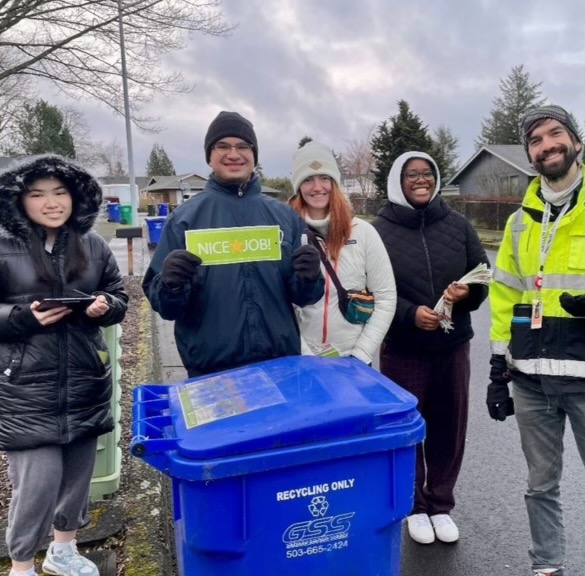
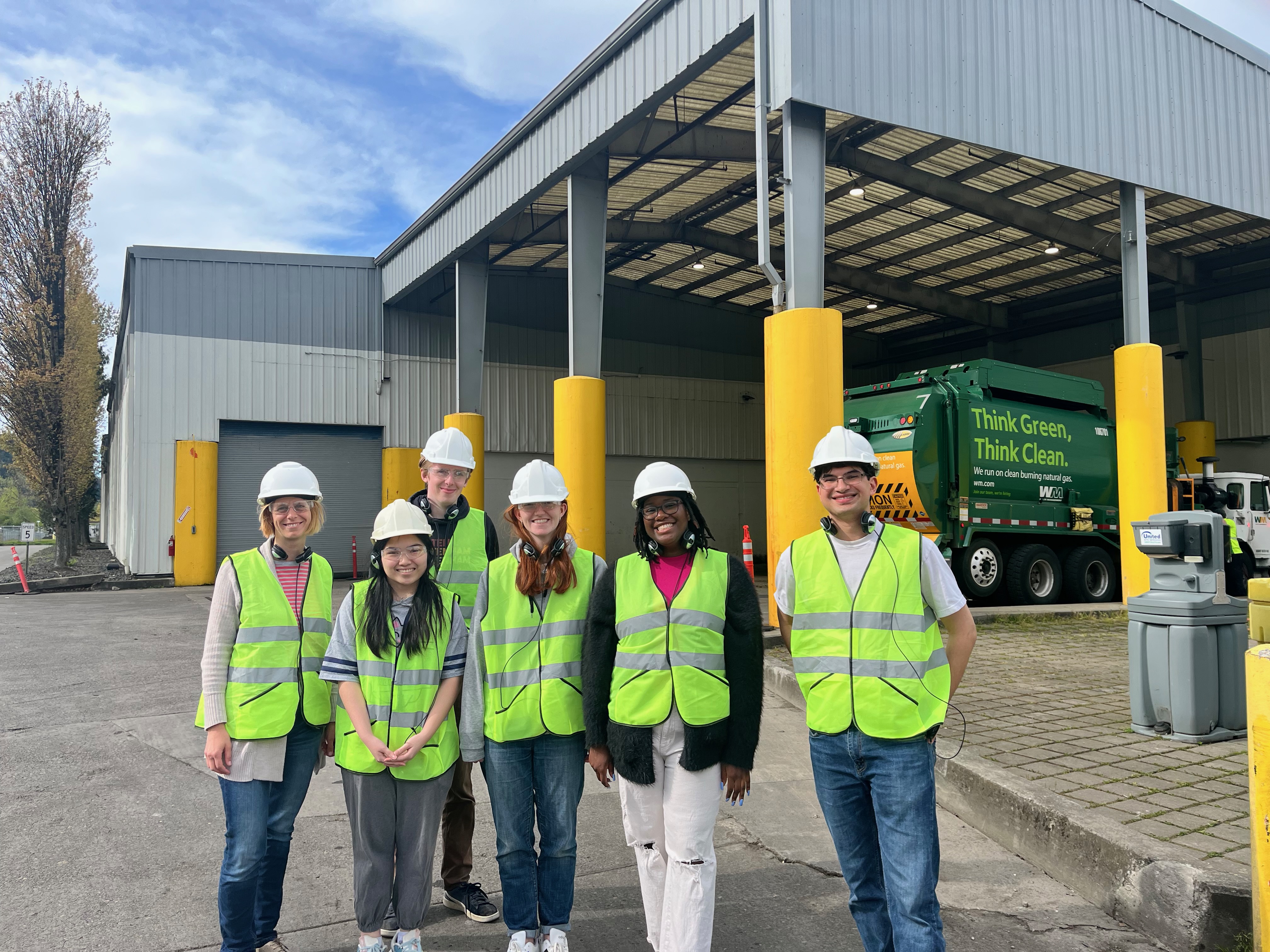

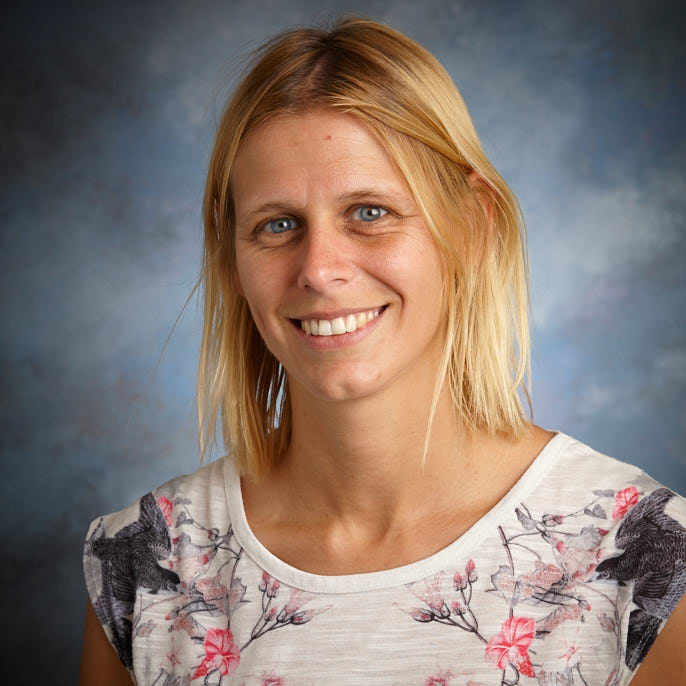
Ruth Dittrich is an associate professor of economics at the University of Portland's Pamplin School of Business. Ruth focuses her research on decision-making for climate change adaptation to support communities and regions in planning for climate change impacts such as increased flooding and smoke from wildfires in becoming more sustainable.
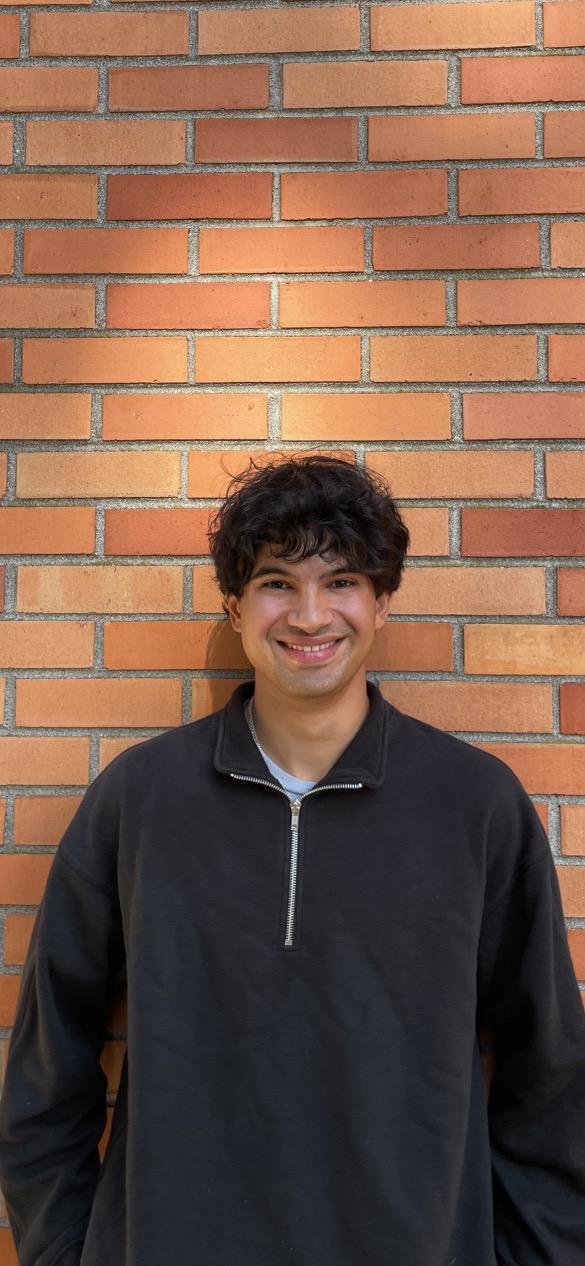
Year: Junior
Majors: Psychology and Economics (BA) with a Writing Minor
Hometown: Beaverton, Oregon
Why PRF: I am interested in working on this project as part of PRF for several reasons. First and foremost, I see the idea of working to create strategies to assess and decrease a societal problem like littering and recycling contamination as an incredible opportunity that relates to what I would like to do in the future. I like the idea of studying how to incentivize people to be better and treat the world better, and I see this project as a chance to explore that. Additionally, I like the idea of getting to experience working with people from different majors and getting to hear different perspectives. Also: getting research experience while in my undergraduate studies is such a game-changer!

Year: Senior
Major/Minor: Biology major/ Sustainability minor
Hometown: I was born and raised in Atlanta, GA
Why PRF: I am interested on working on the project because it will give me research experience involving my minor. I am also interested in learning more about communities in Portland. I have been here for a couple of years and feel like I spend too much time in the UP bubble. I think the research fellowship will be a fun and rewarding experience.
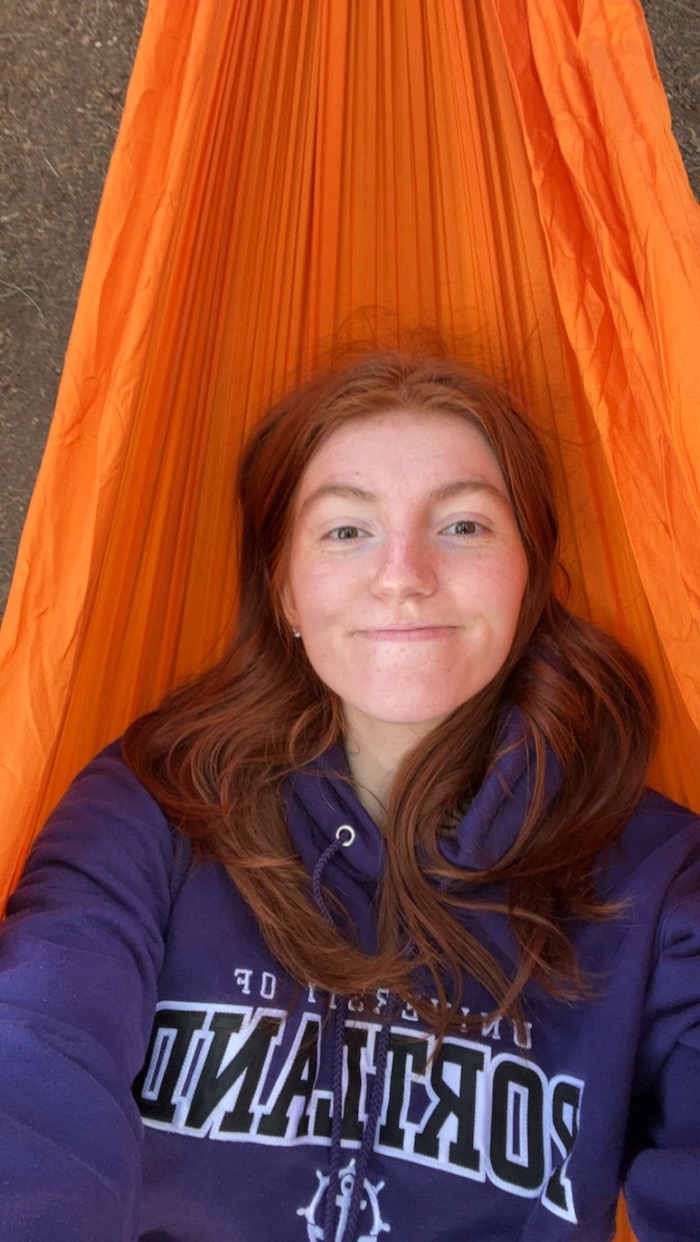
Year: Sophomore
Major/minor: Environmental Studies and Theater with a German minor
Hometown: Seattle, WA
Why PRF: I am interested in this project as part of PRF because it presents an amazing opportunity to get involved with the community both on campus and in the Portland area. I'm especially excited because of my interest in sustainability and encouraging sustainable practices on campus, in Portland, and in future workplaces. I'm also really excited to work with my group mates from many different disciplines in order to creatively problem solve and propose potential solutions.
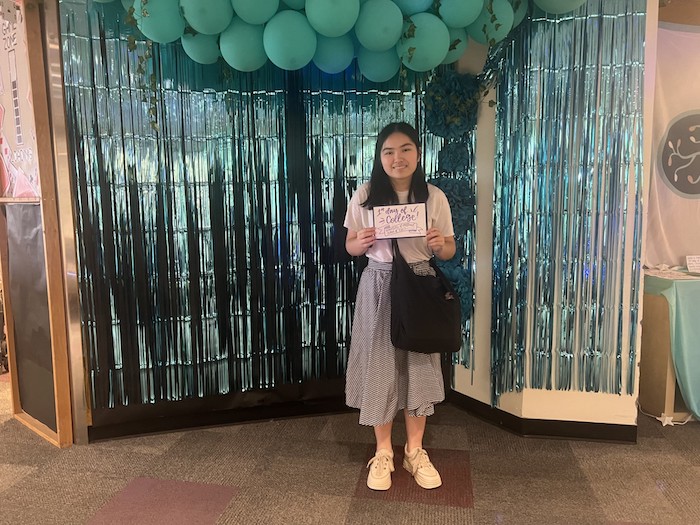
Year: 2027
Major: Business Administration
Hometown: Hanoi, Vietnam
Why PRF: I want to serve as a student fellow because it provides me the chance to explore the real-life practices of my major and work with faculty and other students, both outside and inside my discipline. The topic is intriguing as the sustainability reputation of Portland is one of the main reasons I enrolled at UP. I am looking forward to extending my knowledge, engaging with the community, and contributing my unique perspective to the project.